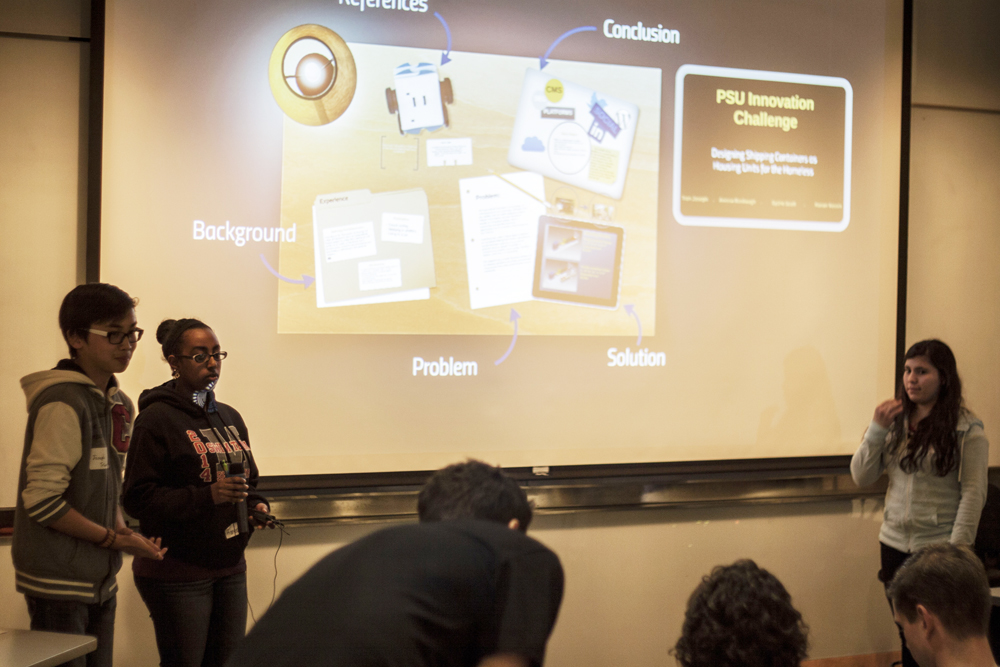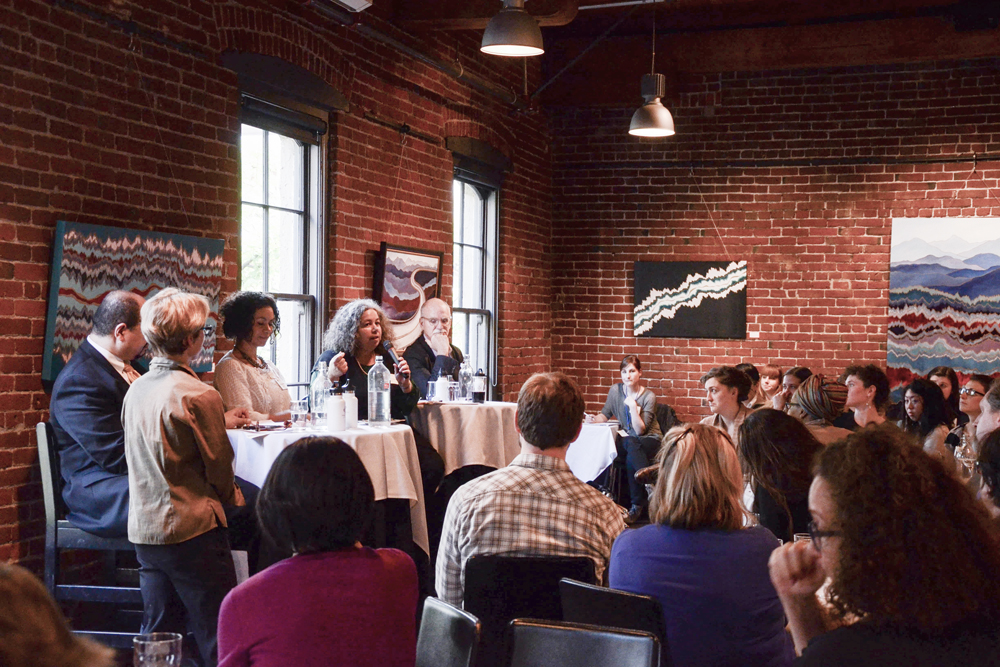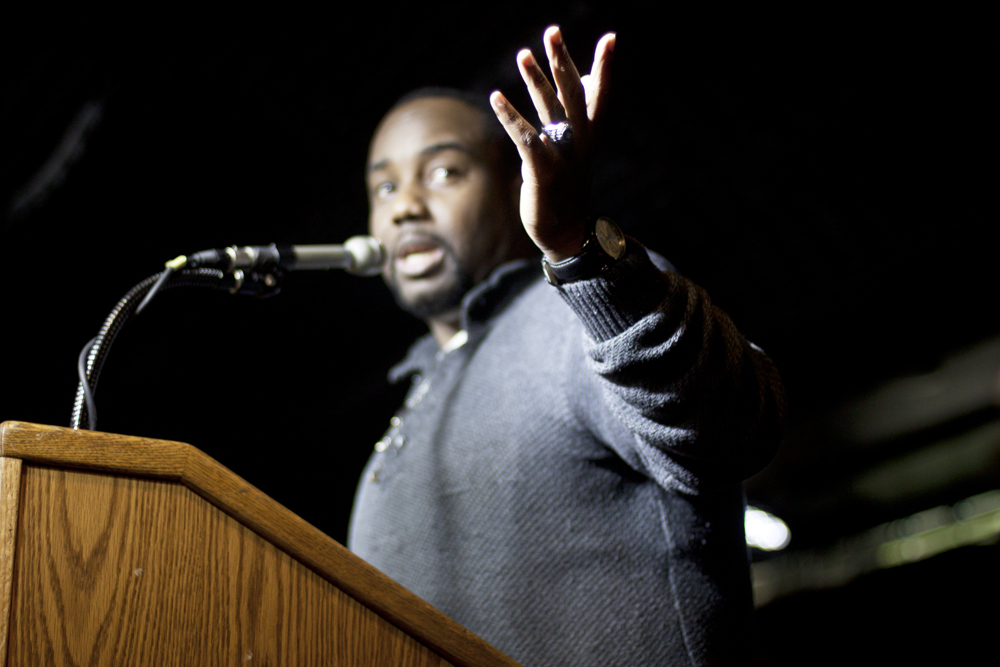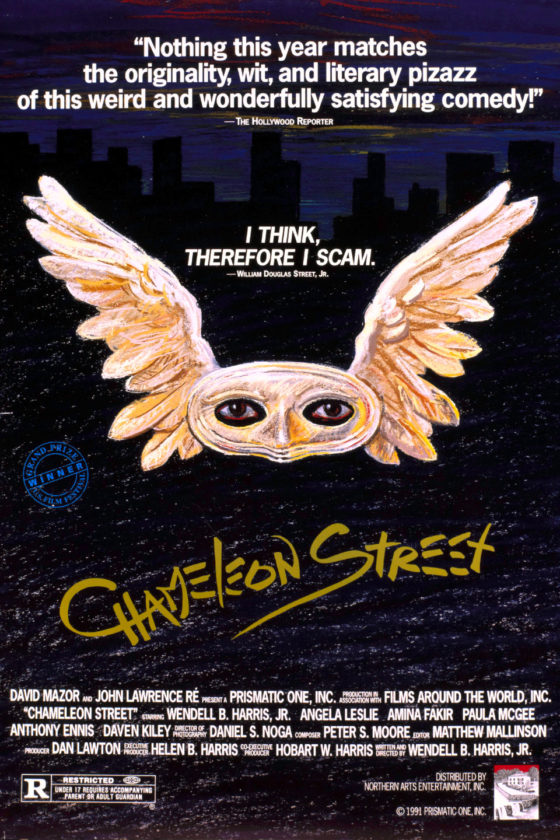At Innovation Challenge Day, high school students from Metropolitan Learning Center (MLC) produced a prototype called Osmosis Alive to encourage the practice of water reuse in Portland.
MLC built a water filtration system that utilizes microbial behavior to detoxify contaminants found in water when used for the first time through daily water usage processes. The idea: once chemicals are filtered from the water, the water can be used as gray water.
Gray water is a form of recycled water. Instead of getting a single use out of a given amount of water, one can extract multiple purposes from a resource that would conventionally be used only for the first intended action. The integration of this filtration system into residential and commercial buildings would decrease the amount of water used daily. This resource allocation practice could have beneficial ripple effects throughout Portland’s watershed.
April 11 marked Challenge Day for high school students at the Maseeh College of Engineering building. Each team presented a new idea that strove to enhance the quality of cities. Students were encouraged to adapt a humanitarian lens while brainstorming how to better the city of Portland through the engineering process.
“It was inspiring to see how well creativity, problem-solving and a humanitarian approach can teach young people about science and technology,” said Renjeng Su, Dean of the Maseeh College.
Eight think tanks were formed through the combination of Portland State student mentors and the high school students that stemmed from their respective high schools: MLC, De La Salle North, Grant, Jefferson, Madison, Lincoln, Wilson and Franklin.
The judging panel consisted of Michael Armstrong, representative for the City of Portland Bureau of Planning and Sustainability, Shu-Lin Garver, a senior engineer from Intel, Matt Jones, Head of Future Infotainment at Jaguar Land Rover, Michelle Rowley, an engineer at MobilePaks, and John Thompson, an architect.
As with Osmosis Alive, the majority of the high school teams’ innovations were geared towards increasing sustainability in Portland.
Like MLC, Jefferson team members created a filtration system—a bit different, by creation, as it was built to expedite the blockage of trash from entering local sewage and aquatic systems.
“It’s a prototype that we designed to replace the current drainage systems,” said Daniel Ortiz of Jefferson High School. “It works on a slanted grate, where it channels the garbage into a trash bin where you will be able to remove it. Therefore reducing the likelihood of a large clot happening somewhere in the system.”
De La Salle developed an idea to implement bioluminescent street plants into Portland’s city planning network.
Madison High School’s participants thought about Portland’s homeless population, and suggested a development project called Container Houses, where homeless could gain shelter, water and electricity.
Grant and Lincoln focused on bikes and originated the formation of new bike locks to increase the frequency of bike availability.
Wilson formulated an idea to implement kiosk systems throughout Portland that would give information about health and safety. They named the system F.I.S.H.
Franklin founded an idea to integrate a mandatory community service class into the primary and secondary education system of Portland that would educate K-9 citizens about trash and the environment. It would also require community service participation.
The awards ceremony followed the presentations. Additionally, Su made the offer of a $1,000 scholarship to any innovation challenge participant who decides to attend PSU as an engineering major.
After deliberation among the judges, the awards were presented as follows to a gleeful, clapping and proud audience:
Osmosis Alive was presented the first place award for teamwork, while Jefferson received an honorable mention in the presentation style category. De La Salle received the most creative solution award and Madison won the human impact award. Grant won first place for audience choice award and Lincoln won in scope and depth. Wilson’s F.I.S.H won honorable mention for human impact. Lastly, Franklin achieved an honorable mention in teamwork.
“All of your projects fit the theme of smart cities really well,” said Tim Anderson, Chair of Engineering and Technology Management at PSU. “It was great to see the creativity that you applied to these real-world problems.”
The event was effective in intriguing students about the realms of engineering and additionally demonstrated the ability of the field to positively impact society.
“I wanted to major in business, but my career advisor really wanted me to try engineering so I said I would try it and I ended up loving the program. I’m definitely coming back next year,” said Miguel Campos of Franklin High School. “I didn’t think trash was such a big problem because I just didn’t notice it—it’s kind of the norm. But once you really research and study it, you’re like, wow, this is a huge problem.”






